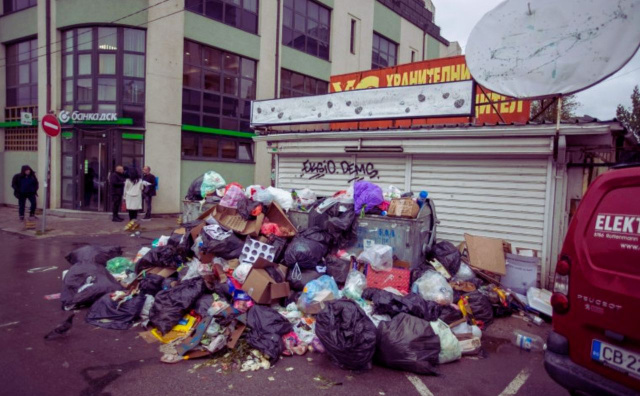
Sofia’s waste crisis has taken an unprecedented turn as Justice Minister Georgi Georgiev announced that prisoners will assist in garbage collection in the Krasno Selo district starting Wednesday afternoon.
The initiative targets individuals convicted of minor offenses, with the potential to expand to Lyulin district if requested by local authorities.
The measure comes amid widespread public and political concern over the capital’s ongoing waste management failures. Several political leaders have voiced strong opinions on how to resolve the escalating situation.
Kostadin Kostadinov, leader of the “Revival” party, argued that waste collection should be fully transferred under municipal control. Speaking in Parliament, he cited Straldzha municipality as a successful example, where local management cut costs threefold after taking over from private contractors.
Kostadinov criticized entrenched corruption and alleged mafia influence in the sector, urging both Sofia Mayor Vassil Terziev and the national government to act decisively.
Radostin Vassilev of the “Morality, Unity, Honor” (MECH) party expressed support for Mayor Terziev in confronting waste companies charging excessive fees. He highlighted exploitative bidding practices that could drain nearly a billion leva from the municipality and criticized authorities for mishandling recent flooding incidents.
Meanwhile, “We Continue the Change” co-leader Asen Vassilev noted improvements in Krasno Selo and Lyulin districts, advocating for the municipality to develop its own waste management capacity.
He condemned private companies seeking “triple profits” and commended the mayor for resisting such practices. Vassilev also called for investigations into arson attacks on garbage trucks and questioned the revocation of licenses for foreign bidders.
Mayor Terziev emphasized the need for a strong state apparatus to tackle the crisis, describing the conflict as a battle between transparency and entrenched corruption.
He revealed that only one waste company remained active in two of Sofia’s largest zones, charging double the market rate, prompting the municipality to organize emergency cleanups with municipal teams, volunteers, and neighboring town support.
Under the emergency system, residents continue using existing gray bins. Smaller trucks transfer waste to larger containers located at three points in Krasno Selo and eight in Lyulin before transporting it to the Yana waste treatment plant.
Unconfirmed reports suggest that garbage from other districts may have been dumped in these zones, worsening the crisis. Terziev framed the situation as a clash between an old system dominated by influential figures and a new, transparent approach demanded by citizens.
The mayor acknowledged support from Bulgarian and international partners, including Europol and the UK, emphasizing that Sofia’s challenge extends beyond waste management to issues of governance, justice, and public trust.
This unprecedented move to involve prisoners underscores both the severity of Sofia’s waste crisis and the urgent need for structural reform in the city’s waste management and political oversight.
This article was created using automation technology and was thoroughly edited and fact-checked by one of our editorial staff members
